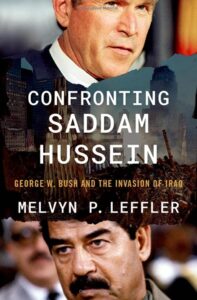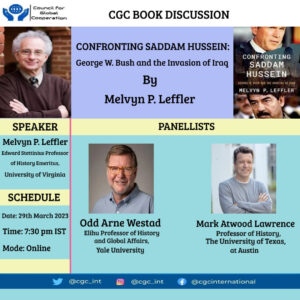
Melvyn P. Leffler in his new book Confronting Saddam Hussein, provides a major new interpretation of George W. Bush’s intervention in Iraq. Often contemplated as the most important foreign policy choice of America and nearly two decades after the event, it still remains central to understanding current international politics and US foreign relations. Leffler analyses why the US chose war and who was most responsible for the decision. Leffler vividly portrays the emotions and anxieties that shaped the thinking of the president after the shocking events of 9/11. Employing a unique set of personal interviews with dozens of top officials and declassified American and British documents, he shows how fear, hubris and power influenced Bush’s approach to Saddam Hussein’s Iraq.

Rather than focusing on Bush’s preoccupation with promoting freedom or democracy, Leffler emphasises Hussein’s brutality, opportunism and unpredictability and illuminates how the Iraqi dictator’s record of aggression and intransigence haunted the president and influenced his calculations. This book unfolds a vivid portrayal and reassessment of George W. Bush’s intervention in Iraq of 2003, the most important international event of the 21st century and post-Cold War era.
SPEAKER:

Melvyn P. Leffler
Member, The Cold War Project and International History and Foreign Policy Advisory Council; Edward Stettinius Professor of History Emeritus, The University of Virginia
PANELLISTS:

Odd Arne Westad
Member, Board of Governors, CGC; Elihu Professor of History and Global Affairs, Yale University

Mark Atwood Lawrence
Member, Board of Governors, CGC; Professor of History, The University of Texas, at Austin
MODERATOR:

Soumava Basu
President and Founder, CGC